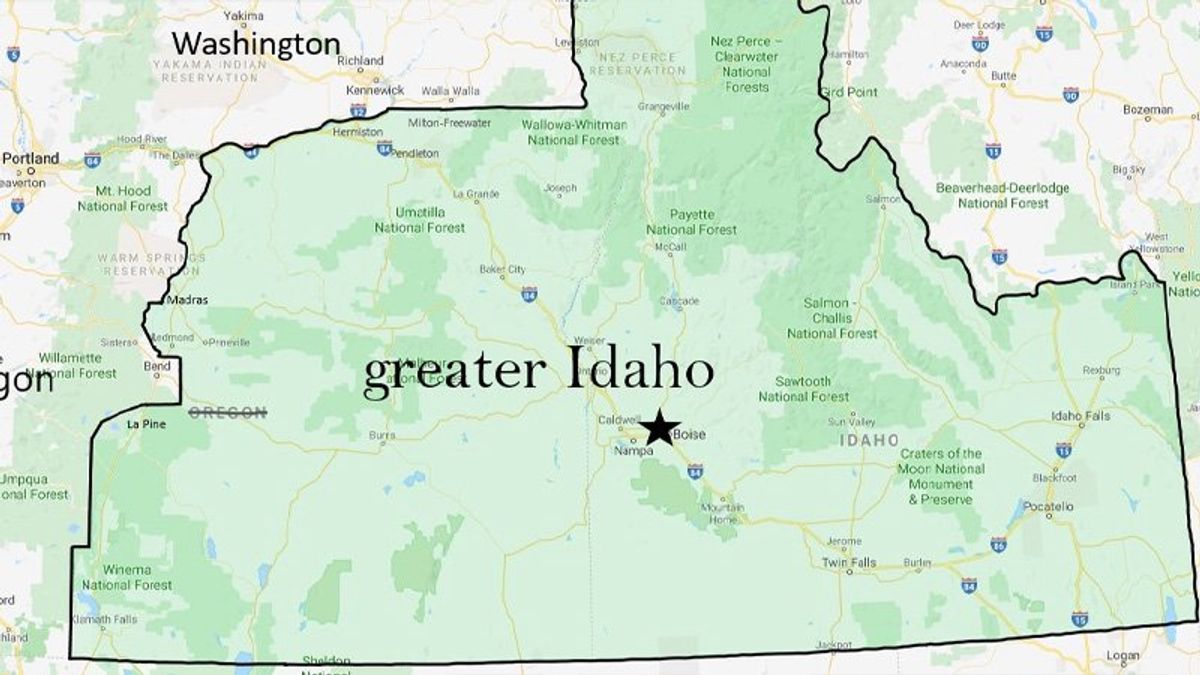
A dozen counties in Oregon have voted in favor of ballot measures that would take steps toward moving the state border to the west – with the ultimate goal of having 14 largely conservative counties join deep-red Idaho.
The region makes up the majority of Oregon's territory but contains less than 10 percent of its population, and the conservatives who do live there feel unseen and unheard by their more liberal neighbors who live to the west of the Cascades.They feel Idaho would offer a more hospitable political climate, reported the Washington Post.
“What we’re looking for is local control, not foreign control,” said Oregon state Sen. Dennis Linthicum, a Republican former software engineer and cattle rancher, "and by foreign I mean Portland, Salem and the rest of those in the west who have decided they know better than we do how to run our lives.”
Linthicum carried a resolution in the last legislative session calling for Oregon to open talks with Idaho on moving the border some 270 miles west, but it never got a hearing, and while the Idaho House passed a resolution calling for the states to negotiate a new border, the measure stalled in the GOP-led Idaho Senate.
POLL: Should Trump be allowed to run for office?
“There’s just a pervasive sense that the values that the western side of the state holds are being imposed, in a kind of oppression, on the east,” said Nicole Howard, a professor of history at Eastern Oregon University, "and the belief held out here is that either they don’t get us or they don’t care.”
Only four state senators represent the eastern portion of the state, just a fifth of the chamber's total, and they were part of a six-week walkout protesting abortion rights and gun-safety legislation, but Howard said the border debate is over more than just politics and the rural-urban divide.
“There’s a dog whistle in the term, too,” Howard said. “It is conservative versus liberal, but the issue of race is also baked into it. It gets to the idea of ‘rural’ as a stand-in for deep cultural touchstones.”
White residents account for more than 80 percent of the population in counties that voted in favor of possibly joining Idaho, which is less racially diverse than Oregon and far more conservative, and an influx of right-wing Christians fleeing other liberal states have already tilted the conservative state even further toward the right.
“If you live in western Oregon, you really don’t know what you are dealing with in the east,” said Mike McCarter, president of the Greater Idaho movement. “The attitudes, the life we live, are different, more like the Old West.”
McCarter and others who would prefer to join Idaho resent "the green push" by western Oregon legislators, who mandated all-electric new vehicle sales by the middle of the next decade, saying that Portland lawmakers don't understand the realities of life in their region, where there few charging stations and no viable options for electric tractors.
“I don’t have a problem with green technology,” McCarter said. “But common sense says you replace diesel engines when you have stable options already in place. As of now, we don’t.”
Bob Wheatley, who lives across the Snake River from Idaho, said his area code is the same as the neighboring state, his county is the only one in Oregon in the Mountain time zone, and he's no longer able to get the Portland-based Oregonian newspaper or Portland news station.
“So much of our interaction is with Idaho,” Wheatley said. “So much of what we relate to, what’s consistent with our values, is now on that side of the river.”
Sandie Gilson, the movement's vice president, also lives in sprawling Malheur County, where an armed group of anti-government extremists occupied a national wildlife refuge in 2016, said the Greater Idaho push was necessary to head off future armed threats in a region that feels ignored by their own state.
“We’re not angry, and we do not want this to come to violence,” Gilson said. “We want to do this peacefully, but there is no doubt there is a lot of anger out there. This movement can be a release valve.”




